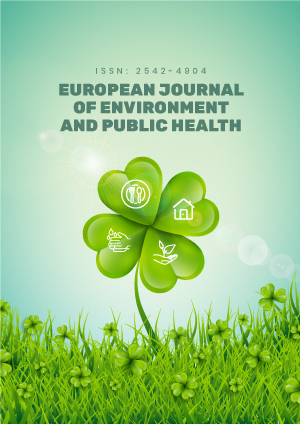Abstract
Introduction: Worldwide, the COVID-19 epidemic remains a serious as an important health problem. Vitamins, minerals, probiotics, and other products that we know as nutritional supplements have received a lot of attention since the beginning of the pandemic, considering their anti-inflammatory, antioxidant, and immune system effects. The aims of this study are to evaluate the reasons and prevalence of the take of nutritional supplements in addition to the normal diet during the COVID-19 pandemic and to observe the effects of the COVID-19 pandemic on individuals’ efforts to live a healthy life.
Material-Method: This study is a descriptive cross-sectional study. The data of the study was obtained through an online questionnaire containing 24 questions. The application of the questionnaire was carried out between August 1, 2021 and August 31, 2021. The online survey was delivered to people aged 18 and over living in Turkey by snowball method. Statistical evaluation was done with SPSS (statistical packet for the social science) 20.0 package program. Chi-square analysis was taken in the evaluation of categorical data.
Results: The study group was formed with 513 people. While 225 (43.9%) participants in the study received nutritional supplements, 288 (56.1%) individuals reported that they did not take nutritional supplements. The frequency of using nutritional supplements was higher in women (50.9%) than in men (29.6%) (p<0.001). The frequency of taking nutritional supplements in the undergraduate-graduate education group was higher than in the other groups (p<0.05). The frequency of taking nutritional supplements was found to be higher in the high monthly income group (4,001 ₺ and above) than in the other groups (p<0.05). The frequency of taking nutritional supplements (67.0%) was higher in those who had COVID-19 infection (38.9%) than in those who did not (p<0.05). Multivitamin was the most common combination of nutritional supplement taken in those taking nutritional supplements (10, 4.4%). Those who took nutritional supplements believed more than the other group that nutritional supplements taken in appropriate doses protected against COVID-19 infection (p<0.01).
Conclusion: For the study group, it is recommended that family physicians provide counseling on the correct take of other nutritional supplements other than multivitamins.
License
This is an open access article distributed under the Creative Commons Attribution License which permits unrestricted use, distribution, and reproduction in any medium, provided the original work is properly cited.
Article Type: Research Article
EUR J ENV PUBLIC HLT, Volume 6, Issue 2, 2022, Article No: em0112
https://doi.org/10.21601/ejeph/12066
Publication date: 01 May 2022
Article Views: 3219
Article Downloads: 2546
Open Access References How to cite this article
 Full Text (PDF)
Full Text (PDF)